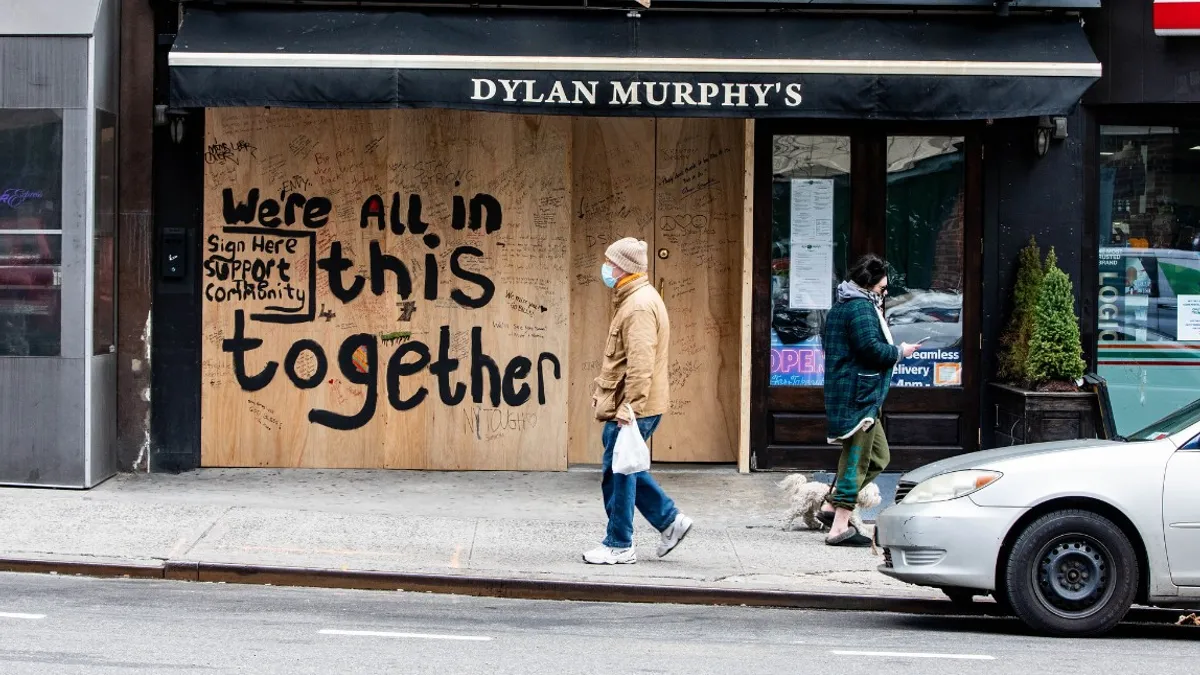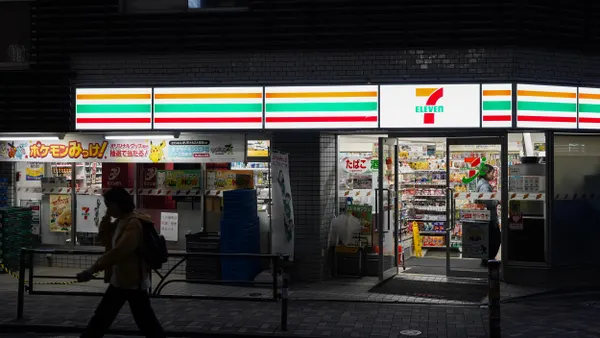Dive Brief:
- The restaurant industry has lost two-thirds of its workforce, totaling more than 8 million employees, according to an April 20 survey by the National Restaurant Association.
- The survey also revealed that 61% of restaurant owners feel that existing federal relief programs including the CARES Act will not enable them to keep employees on the payroll during the crisis.
- NRA is calling on Congress to enact a new Blueprint for Recovery to provide targeted relief that requests a $240 billion restaurant and foodservice industry recovery fund. The guide also pushes Congress to allow restaurants to choose their PPP loan period; revise loan forgiveness restrictions that force restaurants to put 75% of loan funds toward payroll; and restore 10-year loan repayment terms, among additional motions like a refundable tax credit or grant program to cover the cost of maintaining customer health once restaurants reopen.
Dive Insight:
The NRA’s new survey follows earlier research from the group estimating that the restaurant industry will lose $225 billion in revenue by the end of the year. Its Blueprint for Recovery largely aims to provide grants for restaurants on a quarterly basis through an IRS portal to cope with the financial impact of COVID-19. It also calls on the government to fix what it views as structural issues with the CARES Act’s Payroll Protection Program.
Totaling $349 million, the fund is aimed and small and medium-sized businesses as part of a $2.2 trillion stimulus package. But the first round of payments from the fund ran out in only 14 days. Congress is already considering a new $470 billion stimulus deal that would mark another $370 billion for small business funding programs that will add an estimated $310 billion to the PPP. It would also add $60 billion to an emergency small business loan program. But many are expecting the second round of funding to run out even faster than the first with thousands of applications ready to go.
In its Blueprint for Recovery, the NRA reiterated a series of structural changes to the PPP that it had previously submitted to the government. The suggested revisions include structuring payments to better align with state-mandated shelter-in-place orders so that the eight-week loan period applies to the time after the orders lift. Restaurant operators will undoubtedly face a slow restart to business as consumers remain leery of venturing outside or face financial hardships of their own.
The organization is not alone in its criticisms of the PPP. Independent chefs and restaurants have been outspoken about the need for Congress to do more, including a group led by celebrity chef and restaurant operator Tom Colicchio, who criticized the PPP as falling short. The Independent Restaurant Coalition is drawing attention to the razor-thin margins that restaurants already face and the need to provide support beyond the eight-week payroll assistance.











